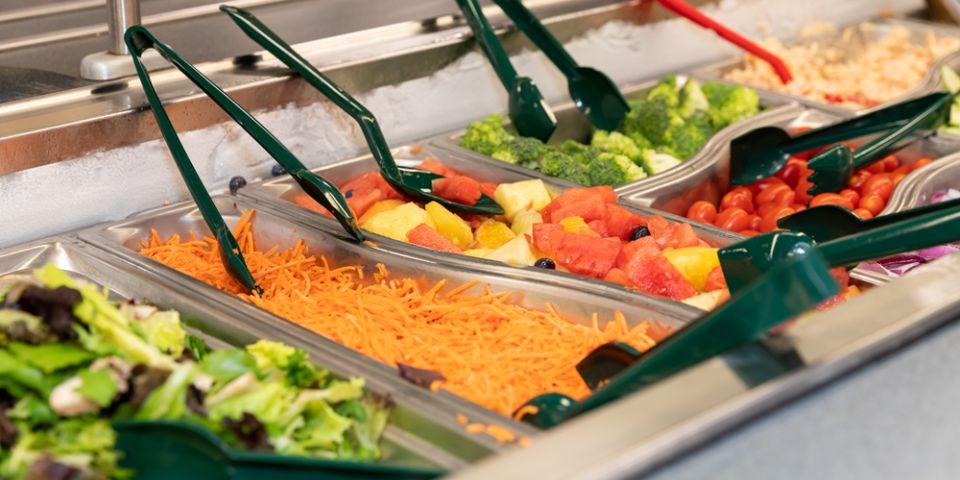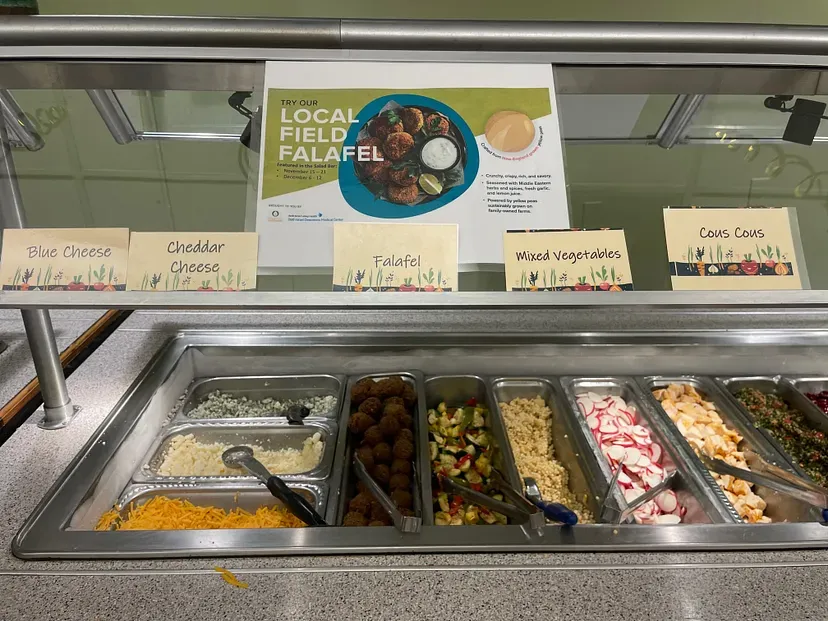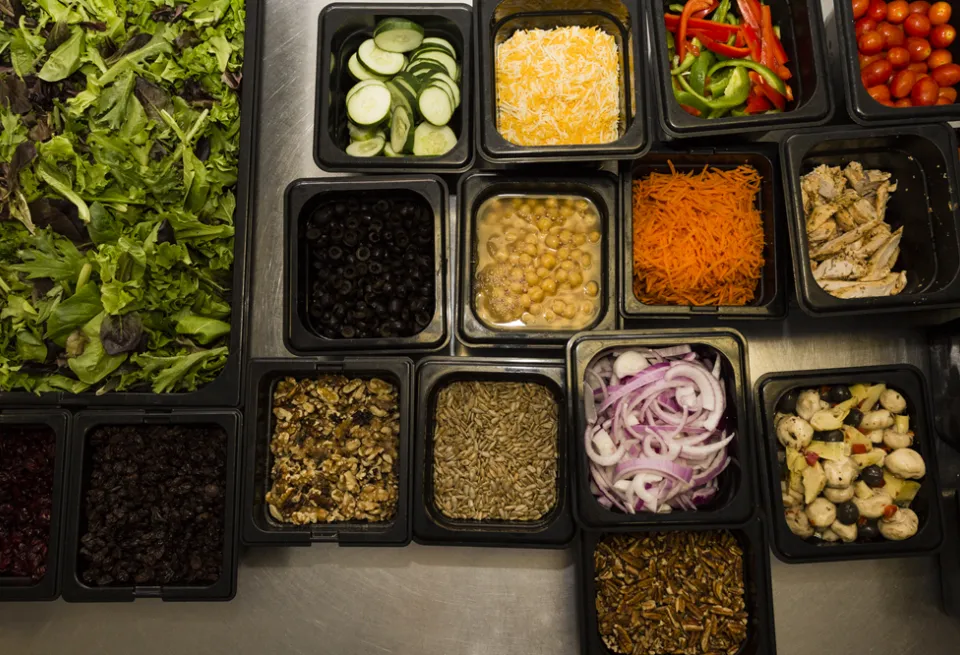Let's Connect
Our friendly and educated team is here to partner with you every step of the way. Connect today to learn of all the ways to partner with The Common Market.
Delivering local food for the common good.

The ACRE Collective, an initiative led by The Common Market Southeast and other food and health organizations that aims to shift procurement among institutions toward values-based purchashing, is proud to include Health Care Without Harm as one of our key partners.
Health Care Without Harm works to transform health care worldwide so that it reduces its environmental footprint, becomes a community anchor for sustainability, and a leader in the global movement for environmental health and justice. Its Healthy Food in Health Care team supports hospitals and communities to adopt strategies that support resilient, equitable, climate-friendly food systems. It co-led the Anchors in Action Alliance, which worked to align food purchasing standards for all institutional types, which resulted in the 2023 update of its Healthy Food in Health Care Standard.
Recently, The ACRE Collective's Program Manager Emily Hennessee sat down to chat with Molly Riordan, Eastern Regional Program Manager of Healthy Food in Health Care of Health Care Without Harm about the importance of healthcare institutions engaging in values-based food procurement.
Emily Hennessee (EH): First things first: Why should hospitals care about values-based food procurement?
Molly Riordan (MR): At Health Care Without Harm, we believe that, as the only sector with "healing" as its mission, health care has the opportunity to use its ethical, economic, and political influence to create ecologically sustainable, equitable, and healthy communities. The food system is deeply enmeshed in the sustainable, equitable, and healthy future we want to see. Regenerative agriculture practices and regional food supply chains have the ability to draw carbon from the atmosphere and store it in healthy soils, promote and reward farmers who protect waterways and build soils, and develop resilient food infrastructure.
Investing in historically marginalized farmers, food producers, and communities can build generational wealth and address inequities in health outcomes and economic prosperity. And, most of all, the food we eat is medicine: eating health-promoting, nutritious foods reduces incidences of chronic disease, which should be the whole point of health care. By investing in sustainable, equitable, and health-promoting foods—what we call "values-based food procurement"—hospitals can treat patients and staff today while investing in addressing the social indicators of health—like climate, economy, or racial justice—now and into the future.
EH: Wow, that's transformative. And, how does Health Care Without Harm support hospitals to overcome challenges to values-based procurement?
MR: Health Care Without Harm and its Practice Greenhealth partner network have developed guidance to support hospitals to implement values-based food purchasing as part of their overall food programming. Our food purchasing guidance includes targets for food that is produced locally, sustainably, and equitably, as well as practical tools to meet those targets. We offer a list of third-party certifications to look for to meet their goals, and provide advice for contracting with food hubs (like The Common Market!) and other purveyors of values-based foods. Our guidance also includes strategies for managing any additional costs associated with paying the true cost of food, such as menuing suggestions and food waste reduction strategies to help budgets stretch further.

EH: That's super helpful. And, to wrap: what are your favorite innovative examples of hospitals incorporating values-based procurement into their dining operations?
MR: Our partners at Brigham and Women's Hospital and Beth Israel Deaconess Medical Center, both in Boston, MA, told us that they were looking for a plant-based protein made with local ingredients, in order to meet their "local" target as well as reduce their carbon footprint. Through a USDA-AMS grant and collaboration with farmers, food researchers, and manufacturers, we were able to design a yellow pea "fritter" or falafel that the hospitals could serve in their cafeterias and to patients. Yellow peas are typically grown as a cover crop to nourish the soil, but they are also high in protein and fiber. Fritters and falafels have many applications and can meet the dietary and cultural needs of many eaters. That product is a win-win-win for values, for hospitals, for eaters, and for the regional supply chain.
Another example that inspires me is the Atlanta-area Northside system's commitment to purchase from BIPOC growers. Along with their food service contractor, Morrisons Healthcare, they agreed that it was important to guarantee farmers from historically marginalized groups that they can count on a certain amount of income each month. That helps farmers plan and expand, which is better for them, for the food supply chain, and for the region. Hospitals buy a lot of food, and even a small commitment to supporting growers like these can have multiplier effects for the region. It really adds value.

The ACRE Collective, led by Health Care Without Harm, is preparing to launch the Georgia ACRE Collective Health Care Cohort. This cohort will meet regularly to work towards embedding values-based procurement into hospital food sourcing. If you are connected with an Atlanta-based healthcare institution and want to partner with the Georgia ACRE Collective or discuss sourcing for your food as medicine program, please reach out to Molly Riordan at mriordan@hcwh.org and Emily Hennessee, ACRE Collective Project Manager at emily@thecommonmarket.org
Our friendly and educated team is here to partner with you every step of the way. Connect today to learn of all the ways to partner with The Common Market.
"The Pink Lady apples were fantastic. We get our apples from a few different places and I must say that those were probably the best out of a non-apple season."
— Jennifer Monaco, Executive Chef, Sustainable Fare LLC, The Lawrenceville School